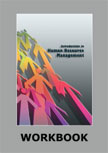The Chappell Way (B): A Case Study in Team Building and Group Dynamics
|
|
ICMR HOME | Case Studies Collection
Case Details:
Case Code : HROB098
Case Length : 25 Pages
Period : 2006-2007
Pub Date : 2007
Teaching Note :Not Available
Organization : Not Applicable
Industry : Sports and Entertainment Countries : India
To download The Chappell Way (B): A Case Study in Team Building and Group
Dynamics case study
(Case Code: HROB098) click on the button below, and select the case from the list of available cases:

Price:
For delivery in electronic format: Rs. 300;
For delivery through courier (within India): Rs. 300 + Rs. 25 for Shipping & Handling Charges
» Human Resource and Organization Behavior Case Studies
» HRM Short Case Studies
» View Detailed Pricing Info
» How To Order This Case
» Business Case Studies
» Area Specific Case Studies
» Industry Wise Case Studies
» Company Wise Case Studies

Please note:
This case study was compiled from published sources, and is intended to be used as a basis for class discussion. It is not intended to illustrate either effective or ineffective handling of a management situation. Nor is it a primary information source.
Chat with us

Please leave your feedback

|
|




<< Previous
Chappell's Unfullfilled Sojourn Contd...
|
In addition, his alleged clandestine leaks to the media about individual team
members had also undermined team spirit, they said. By and large, Chappell's
critics felt that he lacked the people skills and human touch that were so
necessary for a coach to succeed. There was also a feeling that Chappell was
much too interested in preserving his own power equation in the team. Former
Indian captain and coach Ajit Wadekar, said, "He (a coach) should command
respect and not demand it." However, there were many
others who were of the opinion that Chappell could not be totally blamed for the
debacle. They felt that Chappell had tried to do the right things but had become
a victim of a system that was plagued by star culture rather than team culture.
|

|
They felt that Chappell's process was right but it had not been implemented
properly. S Dinakar, Sportstar, said, "Greg Chappell was an honest
straight-talking coach who wanted to make a difference to Indian cricket. He
was unfazed by the challenges, but was up against massive roadblocks in a
system built around "star culture"." The role of
the captain, who did not pull his weight, and the senior team members, who
were more interested in preserving their power and position in the team, was
also criticized. The BCCI also drew a lot of flak as it was accused of being
busy filling its coffers while doing nothing for the development of the
Indian cricket.
|
|
India's debacle and the controversies during Chappell's era also
kicked off a debate on the merits and demerits of a foreign coach
vis-à-vis an Indian one. While some believed that cultural
differences posed a major problem for a foreign coach, others felt
that foreign coaches were technologically better equipped and free
from regional bias. Some experts felt that nationality should not be
the criterion for choosing a coach as a good coach would adjust to
the culture of the players and get the most out of them. However,
some felt that it would be self-defeating to get a foreign coach and
expect him to adjust to the Indian culture and the Indian way, as
the very reason for hiring him would have been to bring about a
radical change in the Indian team. Some experts also pointed out
that great players seldom went on to become good coaches. |
Excerpts >>
|
|









